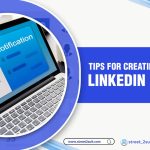When applying for a job, your cover letter is your chance to make a strong first impression. While resumes provide an overview of your qualifications, cover letters allow you to showcase your personality, passion, and the value you bring to the role. However, many candidates struggle to craft an impactful cover letter that captures a recruiter‘s attention.
So, what exactly do recruiters look for in a cover letter?
Let’s quickly look at these amazing tips.
Personalization Matters
A generic cover letter can do more harm than good. Recruiters want to see that you have put thought into your application.
- Address the Hiring Manager by Name: Research the job posting or the company’s website to find the hiring manager’s name. If you can’t find it, use a professional greeting like “Dear Hiring Manager.” Avoid using “Dear Sir/ma.”
- Mention the Company and Role: Reference the specific job title and company name. For example, “I’m excited to apply for the Marketing Specialist position at Dangote Refinery.”
- Show that you have done your Homework: Include a sentence about why you admire the company or how their mission aligns with your career goals. For instance, “Your commitment to sustainability resonates with my passion for eco-friendly innovations.”
Personalization demonstrates genuine interest and helps you stand out from cookie-cutter applications. Applications that lack originality.
A Captivating Opening Statement
Recruiters review dozens, sometimes hundreds of applications. A compelling opening statement can make yours memorable.
- Avoid Overused Phrases: Steer clear of clichés like, “I am writing to express my interest…” If you are not writing to show interest, what else were you writing for? The recruiter knows.
- Open with a Hook: Start with a statement that reflects your passion or highlights a relevant achievement.
Example: “As a social media strategist who grew engagement by 150% in six months, I am eager to bring my expertise to your dynamic marketing team.”
A strong opening sets the tone for the rest of your letter, this also grabs the recruiter’s attention.
Highlight Relevant Skills and Achievements
Your cover letter should complement your resume rather than repeat it. Focus on specific skills and accomplishments that align with the job description.
- Use Metrics: Quantifiable results make a stronger impression. For example, “I led a team of five to implement a new CRM system, increasing efficiency by 30%.”
- Tailor Your Achievements: Choose examples that directly relate to the job’s requirements.
- Bridge the Gap: If you’re transitioning careers or have limited experience, emphasize transferable skills and how they apply to the role.
By focusing on results, you show recruiters that you’re not just qualified; you’re capable of making an impact.
Alignment with the Job Description
Recruiters look for candidates who understand the role and its requirements.
- Incorporate Keywords: Use the language from the job posting to demonstrate alignment. For example, if the job requires “project management,” mention your experience in leading projects.
- Directly Address Job Requirements: Clearly explain how your background matches the role. For instance, “With three years of experience in content creation and a proven ability to manage tight deadlines, I am confident in my ability to exceed your expectations.”
This attention to detail shows you have read and understood the job posting, which recruiters appreciate.
Enthusiasm and Cultural Fit
Passion and cultural fit are just as important as skills. Companies want employees who are excited to contribute and thrive in their environment.
- Express Enthusiasm: Share why you’re excited about the company and the opportunity. Example: “Your company’s innovative approach to technology inspires me, and I would be thrilled to contribute to your groundbreaking projects.”
- Show You are a Good Fit: Highlight how your values align with the company’s mission or culture. For example, if the company values teamwork, mention your experience collaborating effectively in diverse teams.
Genuine enthusiasm can make your application more memorable.
Clear and Concise Writing
Recruiters value clarity. A poorly written or overly lengthy cover letter can hurt your chances.
- Stick to One Page: Keep your letter concise while covering all essential points.
- Use Professional Language: Avoid slang or overly casual language. What’s “I de loyal” doing in your cover letter?
- Proofread Thoroughly: Typos and grammatical errors can leave a negative impression. Tools like Grammarly or having a friend review your letter can help ensure it’s polished.
Remember, less is often more. Focus on quality over quantity.
A Strong and Confident Closing
Your closing paragraph is your final chance to leave a positive impression.
- Reiterate Your Interest: Summarize your enthusiasm for the role and the company.
- Include a Call to Action: Politely invite the recruiter to take the next step, such as scheduling an interview. For example, “I would welcome the opportunity to discuss how my skills align with your team’s goals.” Do not include I hope I have been able to convince and not to confuse you, this is no debate brethren.
- Show Gratitude: Thank the recruiter for their time and consideration.
A confident closing leaves a lasting impression.
Conclusion
A well-written cover letter can be your ticket to landing an interview and ultimately securing a job offer. By following these tips, you can craft a cover letter that stands out in a competitive job market.
Good luck!
Receive the latest job and career updates in your inbox, every week!
Mariam is an imaginative and meticulous writer who is passionate about crafting compelling narratives and translating concepts into influential content.




